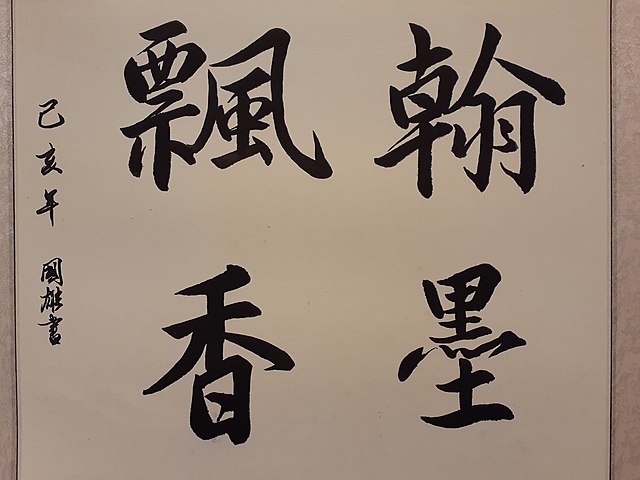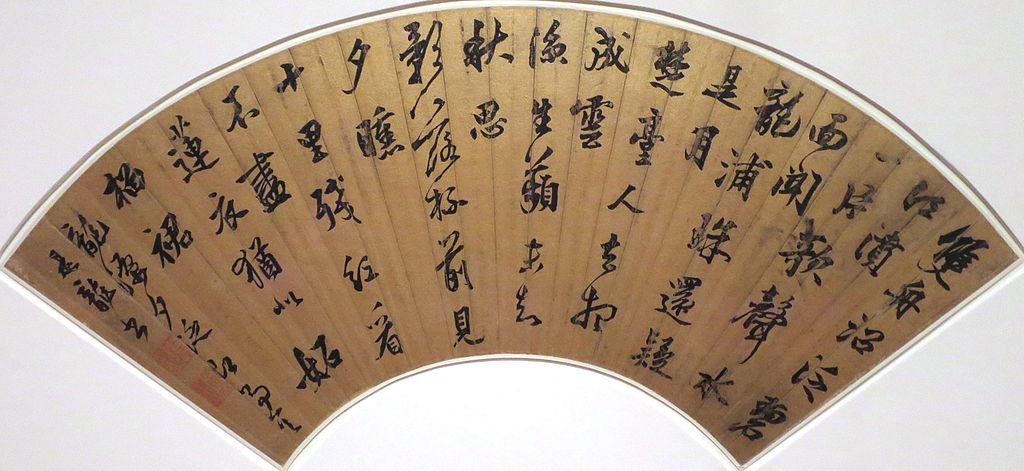Thammasat University students interested in China studies, economics, business, political science, history, sociology, and related subjects may find it useful to participate in a free 6 October Zoom webinar on Mao and Markets: The Communist Roots of Chinese Enterprise.
The event, on Friday, 6 October 2023 at 4pm Bangkok time, is presented by the Hong Kong Institute for the Humanities and Social Sciences, Hong Kong University (HKU).
The TU Library collection includes several books about different aspects of the impact of Mao Zedong on the Chinese business world.
Students are invited to register at this link:
https://hku.zoom.us/webinar/register/WN_gNFWXvEoRZCw6SUu9wOkWg#/registration
The event webpage explains:
Abstract
It was long assumed that as China embraced open markets and private enterprise, its state-controlled economy would fall by the wayside, that free markets would inevitably lead to a more liberal society. Instead, China’s growth over the past four decades has positioned state capitalism as a durable foil to the orthodoxy of free markets, to the confusion of many in the West.
Christopher Marquis and Kunyuan Qiao argue that China’s economic success is based on—not in spite of—the continuing influence of Communist leader Mao Zedong. They illustrate how Mao’s ideological principles, mass campaigns, and socialist institutions have enduringly influenced Chinese entrepreneurs’ business strategies and the management of their ventures. Grounded in case studies and quantitative analyses, this book shows that while private enterprise is the engine of China’s growth, Chinese companies see no contradictions between commercial drive and a dedication to Maoist ideology.
The speaker will be Professor Christopher Marquis, who teaches Chinese Management at the Judge Business School, University of Cambridge, England, the United Kingdom.
The TU Library collection includes a copy of Professor Marquis’s book, Better Business: How the B Corp Movement is Remaking Capitalism.
His personal website notes:
Chris is passionate about how academic research can help people around the world address our most significant challenges. He examines how some of the biggest crises of our day — including climate change, inequality, and racism — are intimately connected to how our current form of capitalism has prioritized accumulating and concentrating wealth for the few over the concerns and needs of everyone and everything else. His research and writing focus on the need to rebalance the interactions between corporations, governments, and civil society to deliver socially and environmentally beneficial outcomes to all.
A second set of his research examines entrepreneurship and market development in China, and how China has developed an economic system that is profoundly different from the West. As a result, it has been difficult for Western leaders to effectively engage with China in business and political affairs, and many problematic policies and strategies have resulted. Through his work, Chris outlines the need to fundamentally rethink assumptions about China’s political economy from the ground up to create the opportunity for better cooperation and competition.

His most recent book, Mao and Markets: The Communist Roots of Chinese Enterprise, may be accessed by TU students through the TU Library Interlibrary Loan (ILL) service.
Professor Marquis observes:
China’s rise calls one of capitalism’s most cherished beliefs about itself into question. Free markets are widely presumed to be more efficient than state-controlled economies and thus make the latter obsolete; moreover, they are thought to promote freedom in other spheres of life. Following traditional economic development theory, many people, including top China strategists in the White House, predicted that Chinese president Xi Jinping would push for economic reforms such as privatization of state-owned enterprises when his administration began in 2012. Instead, he reversed what was seen as a liberalizing trend that started in the early 2000s and made a number of moves that harked back to the founder of the People’s Republic of China, Chairman Mao Zedong, including a potential grant of lifelong tenure in the presidency for himself. In recent years Xi has urged all private companies to serve the state, extolling the patriotic entrepreneur Zhang Jian, who did so in the Qing dynasty; sent Chinese Communist Party (CCP) representatives to private firms; suspended the initial public offering of Ant Financial (the largest payment platform in China, owned by the Alibaba Group); made it increasingly hard for Chinese companies to list on US stock markets; and asked state entities to take stakes and board seats in important technology companies such as ByteDance (owner of TikTok), Sina Weibo (the most popular microblogging website), DiDi (the largest ride-hailing company), and others. Today, many entrepreneurs are now concerned that they will be persecuted or their property will be confiscated. Some have even called for the “exit of private economy,” offering to turn their businesses into state-owned enterprises in exchange for guarantees of protection. Many private firms have received investments from the government or been taken over by it. For example, Anbang Insurance (worth more than $200 billion) and Hainan Airlines Group were both transformed from private firms worth more than $140 billion into state-owned enterprises. During the centenary celebration of the CCP on July 1, 2021, Xi doubled down on China’s commitment to communism, commenting that “any attempt to separate . . . the CCP from the Chinese people will never succeed!” He also emphasized the importance of one-party rule and China’s socialist institutions six times each. Overall, Xi seems to have pulled China from decades of Western-style capitalist reform and embarked on a new path with heavy state intervention (for example, in 2021, the CCP-government issued more than a hundred regulations, including ones that targeted large private businesses), more equal distribution of wealth (for example, a policy called “common prosperity” that some see as “robbing the rich”), and stricter CCP control, all of which revisit the socialist version of the economy of his founding counterpart, Mao. Behind all these puzzling facts are questions about what kind of regime China is: a Marxist-Leninist state, a digital authoritarian country, a crony capitalist nation, or something else?

Earlier this year, he told an interviewer:
Our book documents how and why Mao’s principles continue to be the ideological foundation for modern China and define the legitimacy of the ruling CCP. They are maintained and continue to affect individuals’ ideas through the indoctrination into the Party and more generally the educational system and other socialization processes.
Several research papers, including some of ours that we elaborate on in Mao and Markets, have shown that since the establishment of China’s communist regime in 1949, propaganda has been intense in shaping people’s outlook, especially for those who have gone through the process of joining the CCP. For example, these individuals have to attend important socialization events, study the Party Constitution, and watch related documentaries that celebrate the Party and Mao. This research has shown that after such indoctrination, individuals tend to identify closely with the CCP and given CCP membership now exceeds 95 million, including a significant portion of the elite, such processes should be focused on in much more detail.
But also, there is evidence of transmission of Maoism and in many places beyond simply CCP members, for instance, younger generations’ are expressing vocal admiration for Mao which has been socialized and passed on from their parents and earlier generation. Numerous entrepreneurs we surveyed for our book discussed how Mao set the ideas that provide the ideological grounding for China that they have learned these ideas from their parents and also discuss them frequently with their children.
Moreover, the Chinese educational system strengthens Maoism, aiming to nurture communist ideas starting in early childhood. For instance, from elementary school to college, students are required to take political courses that extol Mao and the CCP’s history, and good grades in these courses are critical for one’s future.
(All images courtesy of Wikimedia Commons)


